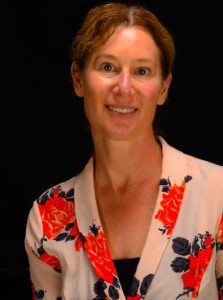
Miriam Langer
Las Vegas, N.M. – New Mexico Highlands University media arts and technology students and faculty will support the creation of cultural heritage hubs at rural libraries in Northern New Mexico, thanks to a grant from The Andrew W. Mellon Foundation.
Miriam Langer, chair of the Media Arts and Technology Department, co-wrote the $250,000 grant and is the principal researcher and technical lead for the initiative.
“The goal of this project is to support communities in reclaiming their cultural narrative,” Langer said. “It’s an exciting collaboration with the nine libraries in Taos and Rio Arriba counties. Our community technology interns, led by recent graduate Shane Flores, will be collecting oral histories and assisting with preserving cultural heritage materials such as photos, letters, maps, audio recordings, and home videos.”
The media arts students will then create digital archives that are shared with libraries in Amalia, Costilla, Cerro, Questa, Peñasco, Chamisal, Las Trampas, Truchas and Dixon.
“We chose these libraries because they have active, engaged librarians and historically, many of our students come from these small towns in New Mexico. This is an opportunity for our students to work with communities to preserve a myriad of important memories,” Langer said.
Langer said another goal of the community archiving project is to develop, implement and sustain a model that other rural communities can use to replicate similar memory-based initiatives.
Langer said Estevan Rael-Gálvez, a former New Mexico state historian, will provide the scholarly leadership and is the project director for the grant.
“Although this sovereign landscape and its people reflect astonishing complexity, wisdom and beauty, it is also a place where we have only begun to measure the depth of the cultural wounds,” Rael-Gálvez said. “Yet, we firmly believe that the process of building community-based archives – connecting rural to urban, the past to the present and a deepened sense of self identity for individuals – is a critical step toward transcending this trauma. Thanks to the support of The Mellon Foundation, and with a deeply creative, conscientious team, I am honored to lead this initiative.”
Langer said what’s innovative about this community archiving project is the technology component.
“We’ll be using machine learning, which is advanced data processing, to see if new patterns emerge connecting communities in surprising ways. Our software system design program, led by faculty Jonathan Lee and Rianne Trujillo, suggested this approach, which is an emerging field called digital humanities,” Langer said.
Langer said the community archiving project will culminate with creating the public archives and a traveling exhibit that a media arts seminar class will produce during fall semester 2019.
